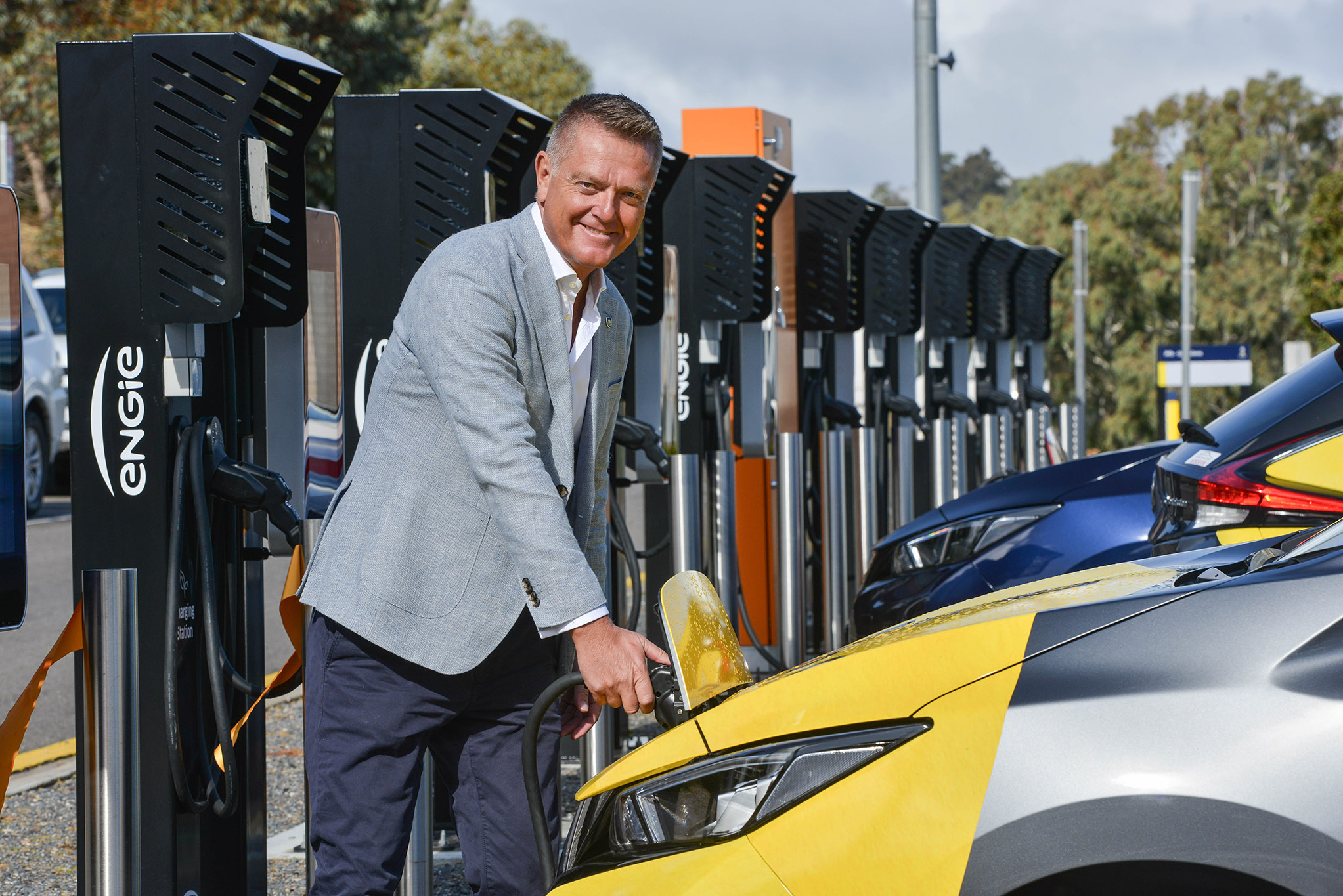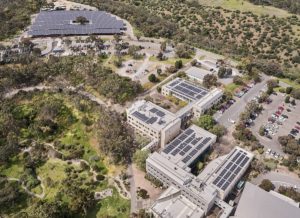
Flinders University has soared to 112 in the world in the latest Quacquarelli Symonds (QS) Sustainability Rankings, recognising the remarkable advances being made across the university in environmental sustainability.
The QS World University Rankings: Sustainability 2024 evaluated 1404 universities around the world to assess their capacity to tackle some of the world’s greatest environmental, social and governance challenges.
In the Environmental Impact category, Flinders ranked 66th in the world (7th in Australia), and 42nd in the world (5th in Australia) in the Environmental Sustainability sub-category, thanks to the University’s efforts to reduce its ecological footprint and promote a circular economy within its campuses.
Flinders University Vice-Chancellor Professor Colin Stirling said the University has implemented a range of innovative initiatives to support sustainability.
“Our campus is now powered by 100% renewable power including a large percentage of self-generated solar energy from more than 7600 solar panels,” Professor Stirling said.
“Meanwhile in transport, we’re transitioning our vehicle fleet to EVs that will save 60 tonnes of carbon emissions per year, together with new bi-directional EV charging stations on campus that are piloting cutting edge vehicle-to-grid technology.”
The University is also spearheading the use of treated water to flush toilets and water gardens and sports fields, thereby reducing our demand on high quality drinking water.

As part of Flinders’ commitment to waste reduction more than 90 tonnes of organic waste is being diverted from landfill each year.
“Our Reduce-Reuse-Recycle waste management approach includes innovations such as special streams for our community to recycle various materials from batteries to surgical face masks,” Professor Stirling said.
Flinders researchers are addressing society’s big challenges in areas such as water conservation, microplastics in the oceans, cleaning oil spills and toxic waste from waters and lands, drought resilient crops, and the impact of climate change on people, plants and animals.
“Industries of today are using our sustainable designer timber, while we’re making exciting advances in areas such as sustainable concrete and organic batteries for the industries of the future,” Professor Stirling said.
“Our efforts not only benefit the environment, but also the community and the economy, by creating jobs, reducing costs, and enhancing social wellbeing.”
In addition to these achievements, Flinders offers more than 200 sustainability-focussed and inclusive education topics, preparing students for the challenges and opportunities of the future. This extensive curriculum is a testament to the University’s commitment to clean energy and climate action.
Professor Stirling emphasised the unique “living laboratory” ethos established by Flinders, where the campus network serves as an example for the wider community, showcasing what can be achieved through environmental innovation.
“This ethos fosters collaboration and experimentation among students, staff, and partners, and supports the development of new solutions for sustainability.”
Looking forward, Flinders’ sustainability roadmap charts a course for Flinders to be a trailblazer as a carbon-positive institution.
“Our environmental impact score reflects our dedication to championing tangible environmental solutions that reduce our footprint and educate the next generation shaping a more sustainable world,” Professor Stirling said.
“Flinders University is proud to be recognised internationally for its fearless approach to sustainability, and we are determined to continue enhancing our impact and lead the way as a carbon-positive institution.”

